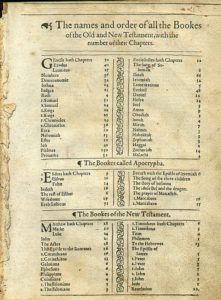Has anyone watched "creatures that defy evolution"? It was on Netflix at one point but it's also on YouTube. It's pretty fascinating. It discusses some animals that are so specialized, natural selection isn't a sufficient explanation for their existence. While an atheist might groan and roll their eyes at the suggestion that this is evidence for a divine creator, it would be interesting to hear what other conclusion they might have.
There is a scientifically rational explanation for everything, even if we haven't found it yet. It wasn't even until recently the reason was found as to why if you slice a grape in half, place it in the microwave and turn it on plasma is generated, the 4th state of matter. It baffled people for a while until not long ago.
500 years ago everyone knew when you were sick it was from tiny frogs living in our stomachs and you could crazy people by drilling holes in there head. Black holes were just a theory, so was gravitational waves in the universe until recently we have a picture of a black hole and the theory of them was surprisingly accurate, and we can measure gravitational waves as well now further proving that theory.
A divine creator is the go to knee jerk response of the lazy minded and weak willed because it is easy and requires no proof at all. That kind of thinking is what holds us back from evolving and learning and growing as a species. Why search for answers when you can pull the God card and put your feet up and call it a day. And we know the flu causes illness now instead of frogs.
If there is a god then which one is it? Multiple groups of millions of people allover the world all believe their god is the one true god, so who is to say which one is correct? Each individual one will say theirs because it's what they are comfortable with and what they grew up with. It's all people who grew up with stories of Santa but no one ever told them he isn't real so they grew up telling their kids he is real and so on. Flash forward 10,000 years and people will think he is real just because a lot of other people said so.
But a lot of things exist that we can explain because we haven't stumbled across the right circumstances or have the proper tools to test with, yet. There is no great unknown spooky stuff in the universe, what we don't know we will in time. Those creatures don't defy evolution at all, they defy our basic understanding of it but in time it will be revealed as so so so so so many other things have that were once impossible. Once we mainstream AI a whole of secrets won't be secrets anymore, and once we can learn to generate gravity and manipulate it the whole universe is going to spread its legs for us like a drunken prom date. It's all a matter of time.
But I understand this need for divinity in people. We came from a dumb and ignorant species that were superstitious and had no knowledge at all. Out of our innate fear of the unknown we created stories about mythical gods to make sense of what we didn't know. We're a story telling species and we told those stories to others who were ignorant and scared and they told them and so on. And then kings and churches came to be and were the most powerful things on the earth and they used those stories to control all the dumb and ignorant people. They created new gods, changed the stories to suit themselves and rewrote things and the dumb and ignorant believed it all because they didn't know how to learn and too primitive to understand science. Flash forward thousands of years of those stories being told as the truth and bam, santa is real in the minds of people. Fiction is reality if you allow it to be.
But those crazy and wacky creatures that defy evolution or whatever nonsense Netflix told you about there are still 2 facts that denounce that notion. 1 they exist so obviously it isn't against evolution at all because it's there. And 2 is it's made up of the same atomic and sub atomic particles as everything else in the universe is made of from my finger nail, to a toaster, to an asteroid, to a speck of dust, to a whale. It's all made of the exact same thing, just circumstances caused its particles to be arranged in the way it was.

